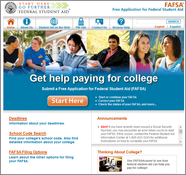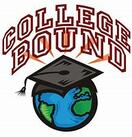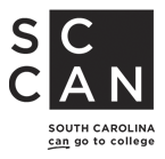
Beginning January 1, 2016 you can electronically submit the Free Application for Federal Student Aid (FAFSA). All students interested in financial aid for college will need to complete this form. Follow the link below for more instructions.
https://fafsa.ed.gov/ |

Time is running out register today for the ACT or SAT test by visiting the websites below:
www.act.org/content/act/en/products-and-services/the-act/test-day.html collegereadiness.collegeboard.org/sat |

The College Funding Coach® was founded in 2002 to help families better understand the complex strategies for paying for college and making higher education more affordable. Since that time, The College Funding Coach team have been on a mission to help families save on the high cost of higher education. The College Funding Coach’s founder, Brock Jolly, realized that most families want to help pay for their children’s education; but they often lack the liquidity and/or the cash flow to be able to do so. The College Funding Coach has established an approach that helps parents understand the college funding process, reduce their out-of-pocket expenses, and balance the challenge of saving for college and retirement simultaneously.
Since 2002, The College Funding Coach team has helped thousands of families decrease their financial obligation for college or increase their cash flow by helping them to understand the means and mechanisms through which families can make college more affordable. The class is now taught in many counties throughout the Mid-Atlantic United States through the adult education programs in each county, or directly through schools, churches and other community organizations with whom they have developed partnerships. Please click the link below: www.thecollegefundingcoach.org/ |
|

The SC CAN GO is an integrated marketing and advertising campaign to promote a college-going culture in South Carolina and raise needed college access awareness throughout the state. The primary goal of this campaign is to encourage South Carolina students and families to take an active role in pursuing higher education. The campaign is meant to show South Carolina students and their families how to overcome perceived barriers and assist school counselors and education professionals and provide them with the resources in order to create college going cultures for all students in South Carolina.
All over the country, community-based, non-profit college access networks of local and national reach are helping students and their families achieve the goal of postsecondary education. To learn more about the National College Access Network (NCAN), which includes over 200 organizations, visit collegeaccess.org and find the college access programs operating in your area. http://sccango.org/what-is-sccango/ 
"A Bold Step Forward"
Choose your future......before it choose you....Whether you feel called to serve or just curious, here you’ll find the facts, figures and tools to help you make an informed decision about joining the Military and one of its five major branches: Army, Marine Corps, Navy, Air Force and Coast Guard. 
Please feel free to check out the student service page. Please send me an email with any questions, ideas, or other information you would like to see on this page. ccrawford@dillonatech.com

SAT & ACT Preparation
There are a lot of misconceptions about the SAT and ACT. There is no magic bullet or trick that will automatically improve your score. There really isn't even a way to study for it (after all you're being tested on almost everything you've learned in high school). What you can do, however, is prepare for the tests. Through dedicated and intentional practice and preparation you can improve your test scores. - www.collegeboard.org: Official website of SAT - you can register for the SAT, prepare for the test, and get resources and information on college searches, career planning, and scholarship searches - www.actstudent.org: Official website of ACT - you can register for the ACT, prepare for the test, and get resources and information on college searches, career planning, and scholarship searches  Choose your future before it choose you! Choose your future before it choose you!
Are you looking for a college or university in South Carolina. Simply follow the link below for more information.
http://www.sciway.net/edu/colleges/alphalist.html |

Think, Plan, Act!
Applying to college takes a lot more effort than simply filling out an application. It requires a lot of planning and commitment. Below is a generic guideline on how to start the process, but each student and family is different and you must always take into consideration factors that might play into your decisions regarding your future. THINK: Really give it some thought as to why you want to go to college. Are you mentally, academically, and emotionally prepared? Should you go to a four year or start at a two year and then transfer. Making a commitment to advance your education is great, but it needs to be for the right reasons and only you and your family can make that decision. That being said deciding where, when, and what you're going to college for needs to be a personal reason that you have given a lot of thought and consideration to before making uninformed decisions. Things to consider: *GPA/Course history/SAT/ACT scores - Do you have the GPA, courses, and test scores needed to get into the colleges are you wanting to apply to? Some colleges and universities have strict admission guidelines that you want to be aware of before you put time into applying. Visit the colleges' websites to see what their admission requirements are. If you do not meet the requirements currently see if there is a way you can meet them during your last year of high school (or even after), the amount of work you're willing to put in now and have in the past will determine your options for the future! *Cost - How much can you/your family afford to put towards college, if you will need financial assistance start looking into it now rather than later in the spring so you will know whether or not you can afford where you would like to go. However, do not let the price tag of a college prevent you from applying. Cost of tuition is not the same as financial assistance! Apply and then wait until you receive the financial aid package from each school to determine what is the better deal. *Fit - What are you looking for in a college? Picking the right college is often like buying the right house; it is a lifetime commitment. There are a lot of factors to consider when looking at colleges including location, atmosphere, cost, extracurricular activities, not to mention majors offered! College Search (from College Board) is a great online tool for searching through colleges. College Navigator (from the National Center for Education Statistics) is another great online resource. You can also browse the college pamphlets set up in the guidance lobby! PLAN: Great, you've talked with your family and decided you want to go to college because it's the right choice for you. Now the real work begins! *Research - Look further into what colleges you would like to apply to. If you have an idea or know already visit each school's website to find out as much as you can about each school. Not only should you familiarize yourself with important information regarding their admissions process (such as deadlines and requirements), but dig dipper to get to know the college as a whole. Find out about their academic programs, their professors, summer learning opportunities, internships, co-ops, extracurricular activities, student organizations, research opportunities, etc. Find out what they have to offer so you can one: figure out if it's the best fit for you; and two: know what they have available so you can get involved as soon as possible! *Timeline - Once you know where you would like to apply, create a timeline of everything you need to accomplish from now to the end of the year. It is very easy to forget a step (like submitting a deposit on your dorm room) if you do not have this information readily available and organized. Make sure it includes information about the colleges (admission deadlines) as well as outside events (dates of the SAT/ACT if you need to take them again). *ACT: Now comes the hard work !! *Apply - Organize your applications and make sure you have everything you need: essays, recommendation letters, application fees, test scores, official transcript etc. Each college is unique in what they require, make sure you read their instructions carefully and keep them organized. *Use resources - The resources posted throughout this website offer a wide array of information and advice on everything from getting a better ACT/SAT score to nailing your college interview. Make sure that you actively seek out information about topics you might not be familiar with (now is not the time to "wing it" or be a "know it all"). The preparation and work you put into your application process will show when acceptance letters are sent out. Remember you can always email me or stop by my office with questions about the process, I might not have the answer but I will know where to look! |

Financial Aid
A lot of confusion exists between students, their families, and the cost of college. The more information you are able to get about how to pay for college the better off you will be, but like anything dealing with money you want to make sure that the information you are getting is accurate and truthful.Websites: Below are some useful websites for information on scholarships and financial aid South Carolina Commission on Higher Education (SC CHE) - This will take you to the "Parent & Students" section of the SC CHE website where you can find useful information about state scholarships and grants (like Life and Lottery Tuition Assistance) as well as general financial aid information. There is also information useful to helping families pick the "best fit" for college.
Free Application for Federal Student Aid (FAFSA)
- This is the only website you should ever use to fill out the FAFSA.
The FAFSA is a form used by the department of education to calculate how much federal aid a student is eligible for and how much their family is expected to contribute based on their unique financial status.
*The FAFSA must be completed each year a student is in school and requested financial aid.
*Each year's FAFSA is unique and is not available until January 1st of each year.
Studentaid.ed.gov
- Department of Education website that provides useful information to families about scholarships and financial aid. This website provides great information about the different types of financial aid available, how best to secure financial aid, how to make the best decisions regarding college choice based on
finances.
FastWeb.com - a search engine for scholarships. Students can set up an account and search for eligible scholarships based on their criteria (i.e. major, gender, religious affiliation, GPA, test scores, etc.). Please be aware that much like search results from Google, Bing, and Yahoo you must be careful to ensure that the scholarships you find are legitimate and valid.
Studentscholarships.org
- a collective website with continuously updated scholarships, great resource for scholarships offered through organizations and companies.
MeritAid.com - a search engine for merit based (high academic standing) scholarships. This website shows you which scholarships are available from which colleges and how to apply to them.
Scholarships.com - a search engine for scholarships. Students can set up an account and search for eligible
scholarships based on their criteria (i.e. major, gender, religious affiliation, GPA, test scores, etc.). Please be aware that much like search results from Google, Bing, and Yahoo you must be careful to ensure that the scholarships you find are legitimate and valid.
Big Future - This website, by College Board, provides additional information about the financial aid process and how to make the best decisions based on your situation.
ACT FinAid - This website, by ACT, also provides useful information about the financial aid process.
College & Financial News- for Educator Recruitment, Retention, and Advancement, for all students, but especially for those thinking about pursuing a career in teaching.
https://studentaid.ed.gov/types- The U.S. Department of Education awards about $150 billion a year in grants, work-study funds, and low-interest
loans to more than 15 million students. Federal student aid covers such expenses as tuition and fees, room and board, books and supplies, and transportation. Aid also can help pay for other related expenses, such as a computer and dependent care. Thousands of schools across the country participate in the federal student aid programs; ask the schools you’re interested in whether they do!
A lot of confusion exists between students, their families, and the cost of college. The more information you are able to get about how to pay for college the better off you will be, but like anything dealing with money you want to make sure that the information you are getting is accurate and truthful.Websites: Below are some useful websites for information on scholarships and financial aid South Carolina Commission on Higher Education (SC CHE) - This will take you to the "Parent & Students" section of the SC CHE website where you can find useful information about state scholarships and grants (like Life and Lottery Tuition Assistance) as well as general financial aid information. There is also information useful to helping families pick the "best fit" for college.
Free Application for Federal Student Aid (FAFSA)
- This is the only website you should ever use to fill out the FAFSA.
The FAFSA is a form used by the department of education to calculate how much federal aid a student is eligible for and how much their family is expected to contribute based on their unique financial status.
*The FAFSA must be completed each year a student is in school and requested financial aid.
*Each year's FAFSA is unique and is not available until January 1st of each year.
Studentaid.ed.gov
- Department of Education website that provides useful information to families about scholarships and financial aid. This website provides great information about the different types of financial aid available, how best to secure financial aid, how to make the best decisions regarding college choice based on
finances.
FastWeb.com - a search engine for scholarships. Students can set up an account and search for eligible scholarships based on their criteria (i.e. major, gender, religious affiliation, GPA, test scores, etc.). Please be aware that much like search results from Google, Bing, and Yahoo you must be careful to ensure that the scholarships you find are legitimate and valid.
Studentscholarships.org
- a collective website with continuously updated scholarships, great resource for scholarships offered through organizations and companies.
MeritAid.com - a search engine for merit based (high academic standing) scholarships. This website shows you which scholarships are available from which colleges and how to apply to them.
Scholarships.com - a search engine for scholarships. Students can set up an account and search for eligible
scholarships based on their criteria (i.e. major, gender, religious affiliation, GPA, test scores, etc.). Please be aware that much like search results from Google, Bing, and Yahoo you must be careful to ensure that the scholarships you find are legitimate and valid.
Big Future - This website, by College Board, provides additional information about the financial aid process and how to make the best decisions based on your situation.
ACT FinAid - This website, by ACT, also provides useful information about the financial aid process.
College & Financial News- for Educator Recruitment, Retention, and Advancement, for all students, but especially for those thinking about pursuing a career in teaching.
https://studentaid.ed.gov/types- The U.S. Department of Education awards about $150 billion a year in grants, work-study funds, and low-interest
loans to more than 15 million students. Federal student aid covers such expenses as tuition and fees, room and board, books and supplies, and transportation. Aid also can help pay for other related expenses, such as a computer and dependent care. Thousands of schools across the country participate in the federal student aid programs; ask the schools you’re interested in whether they do!
|
|
|
|
|
College Board Information
Post-Graduation Planning for DCTC Students www.collegeboard.com SAT Test Nearly every college in America accepts the SAT or Subject Tests as a part of its admissions process. That's why more than two million students take the SAT every year.Get the information you need at: Benefits of Online Registration Choose the test date and test center Get immediate registration confirmation 24-hour access to registration for printing or correcting your Admission Ticket |
ACT Test
What is the ACT? The ACT is a national college admissions examination that consists of subject area tests in: English Mathematics Reading Science The ACT Plus Writing Test includes the four subject area tests plus a 30-minute Writing Test. ACT results are accepted by all 4-year colleges and universities in the U.S. Visit www.actstudent.org to register for the ACT or ACT Plus Writing test. |
New FREE, comprehensive college planning website that improves the college planning process for all students. The sites are designed with input from students and educators, the sites contain information you have come to rely on, now presented in a more student-centered, interactive way. Click on the links below for more information. Students I encourage you to share this information with your parents. If you have any questions please speak with Ms. Crawford, Guidance Counselor at 774-5143.
https://bigfuture.collegeboard.org/
http://sat.collegeboard.org/home
http://student.collegeboard.org/css-financial-aid-profile
http://mycollegedollars.hyfnrsx1.com/
http://netpricecalculator.collegeboard.org/
http://www.myfuture.com/
https://bigfuture.collegeboard.org/
http://sat.collegeboard.org/home
http://student.collegeboard.org/css-financial-aid-profile
http://mycollegedollars.hyfnrsx1.com/
http://netpricecalculator.collegeboard.org/
http://www.myfuture.com/